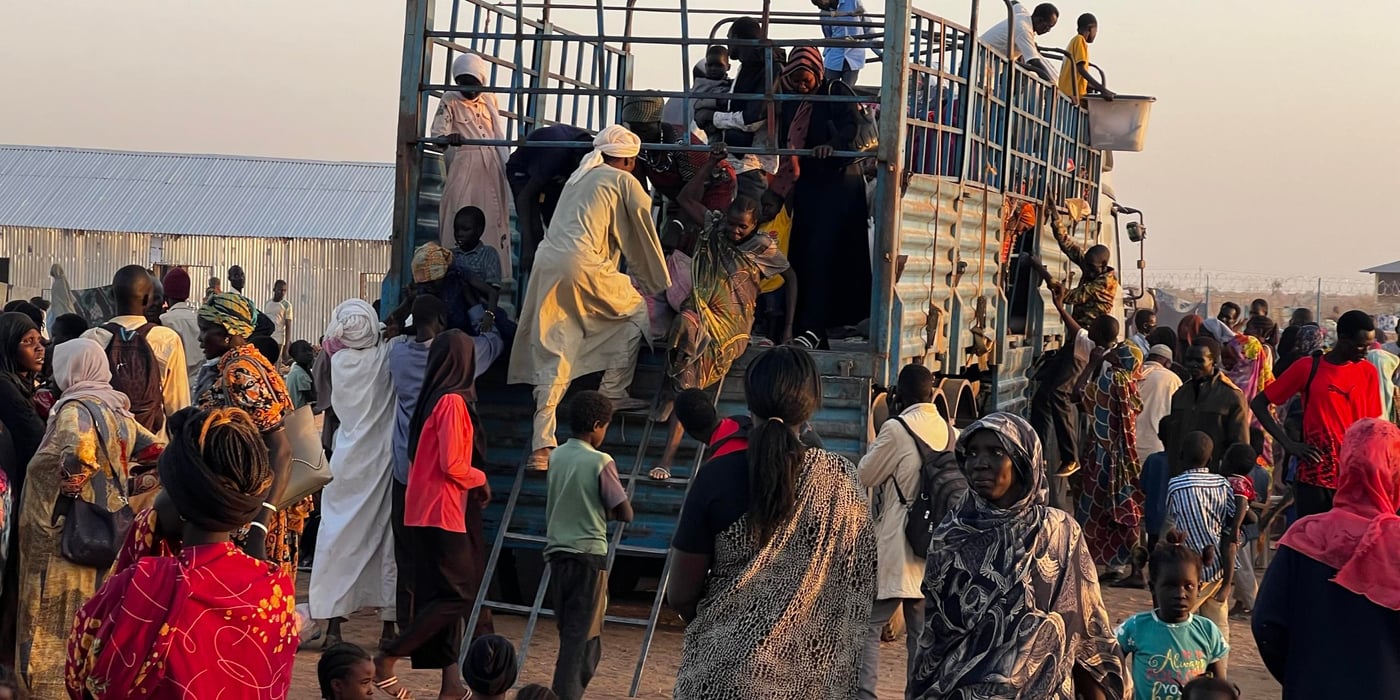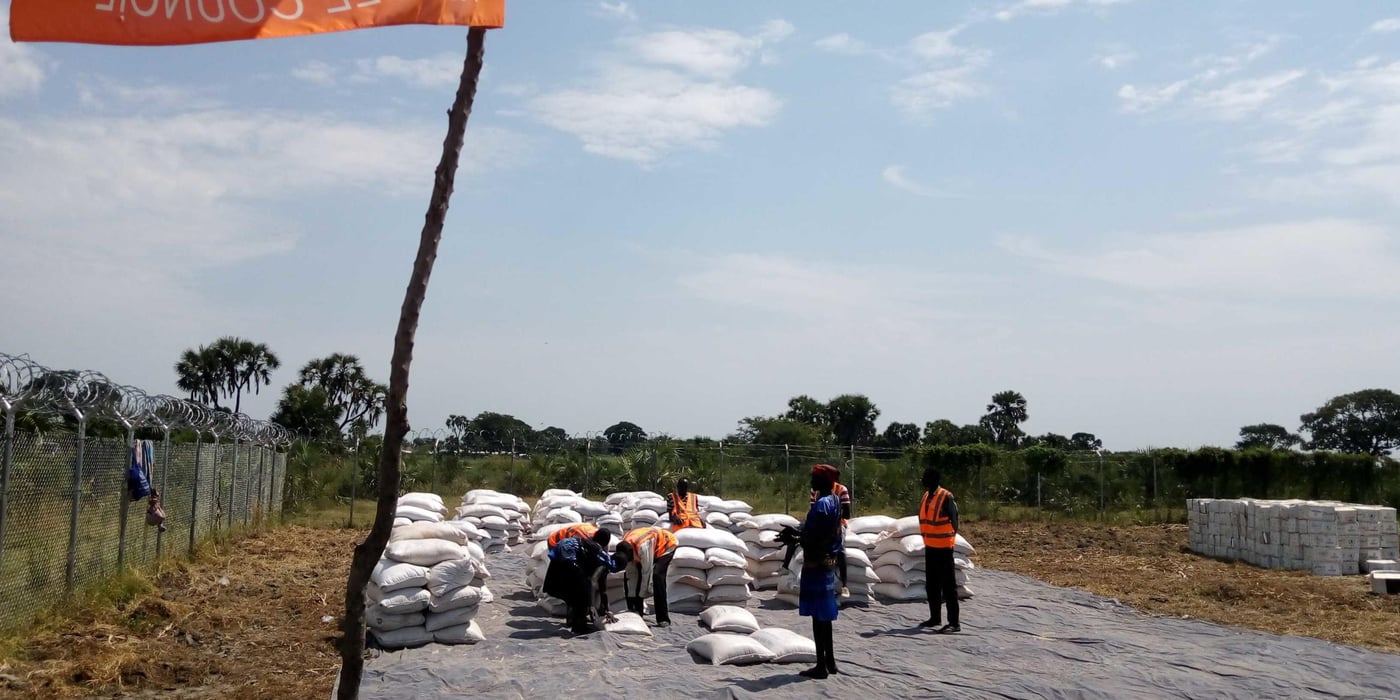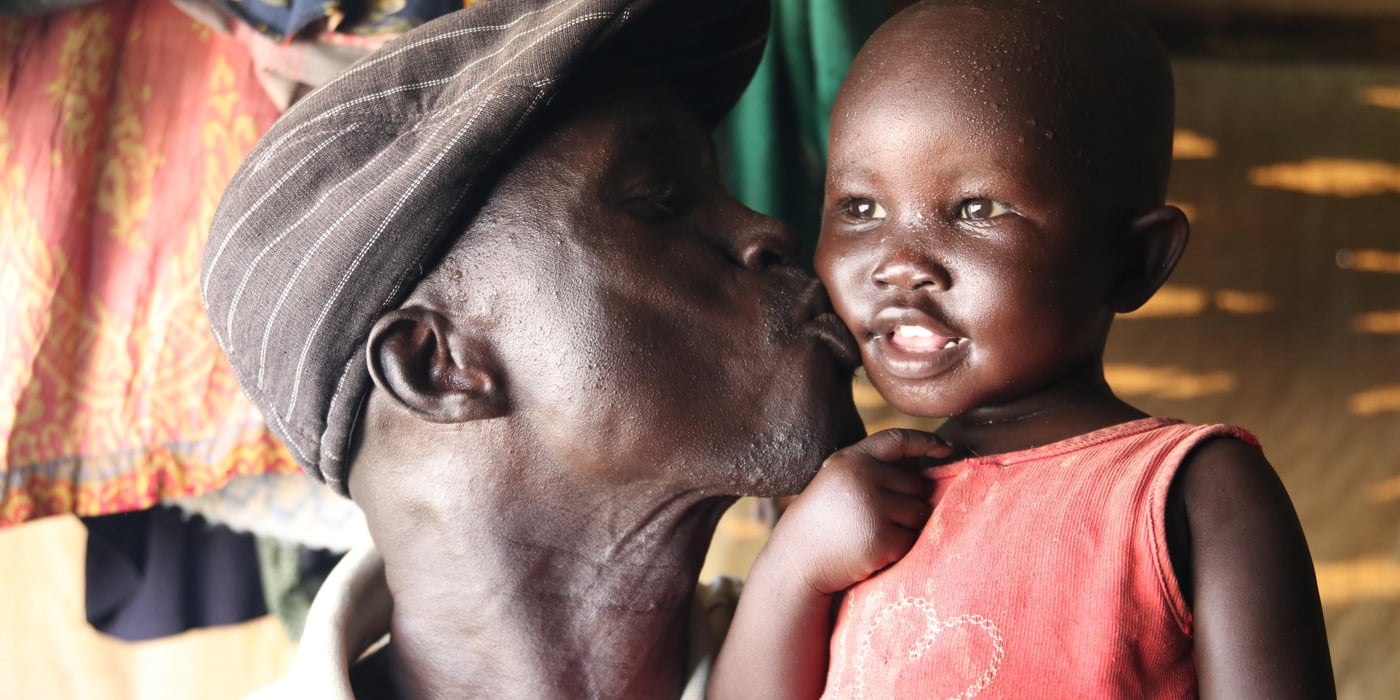
There is a small hut in the south-western corner of a UN protection site for displaced people in the South Sudanese capital of Juba. It is home to 45-year-old South Sudanese, Majok Yien Wanjang, along with his wife and their five children. This is their life now, but it wasn’t always like this.
Until eight years ago he lived in Khartoum, the capital of neighbouring Sudan, together with his wife Teresa and their children.
"I went to Khartoum for my studies, that’s where I met my wife. We had good jobs, I was working in the private sector and Teresa was an accountant. Life was very good in Khartoum,” he recounts.
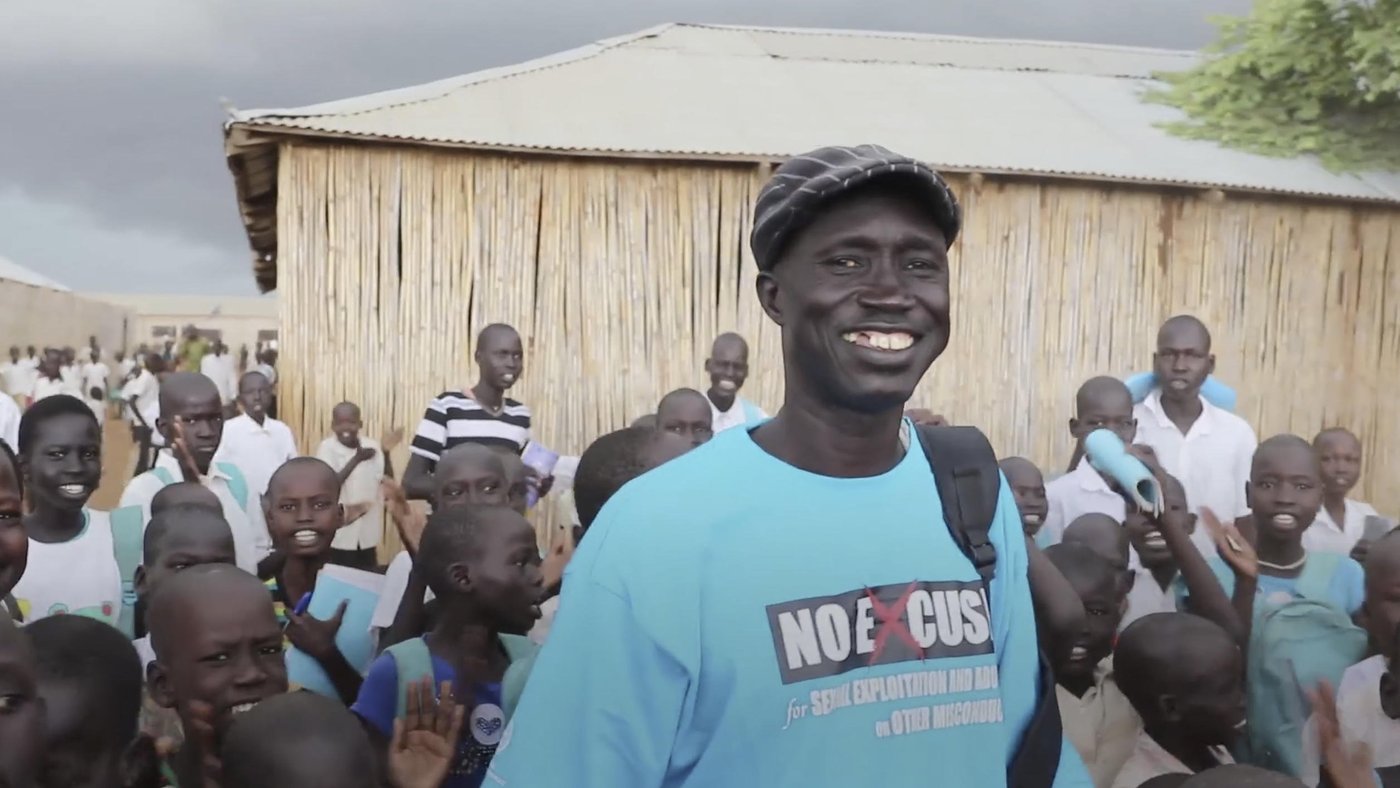
Wanted to rebuild his country
In 2011, South Sudan gained independence from Sudan, marking an end to Africa's longest-running civil war. A few months earlier, Majok and his family moved home to Juba to contribute to rebuilding the country.
"During our first year in Juba, we had everything, and our children went to good schools."
Then, in December 2013, fighting broke out.
"There was shooting and killing all over the town. We did not sleep at all."
Early the next morning they ran to the UN protection camp for safety. "The shooting continued everywhere, and people were dying around us. I’m very happy that all my family members are safe," says Majok.
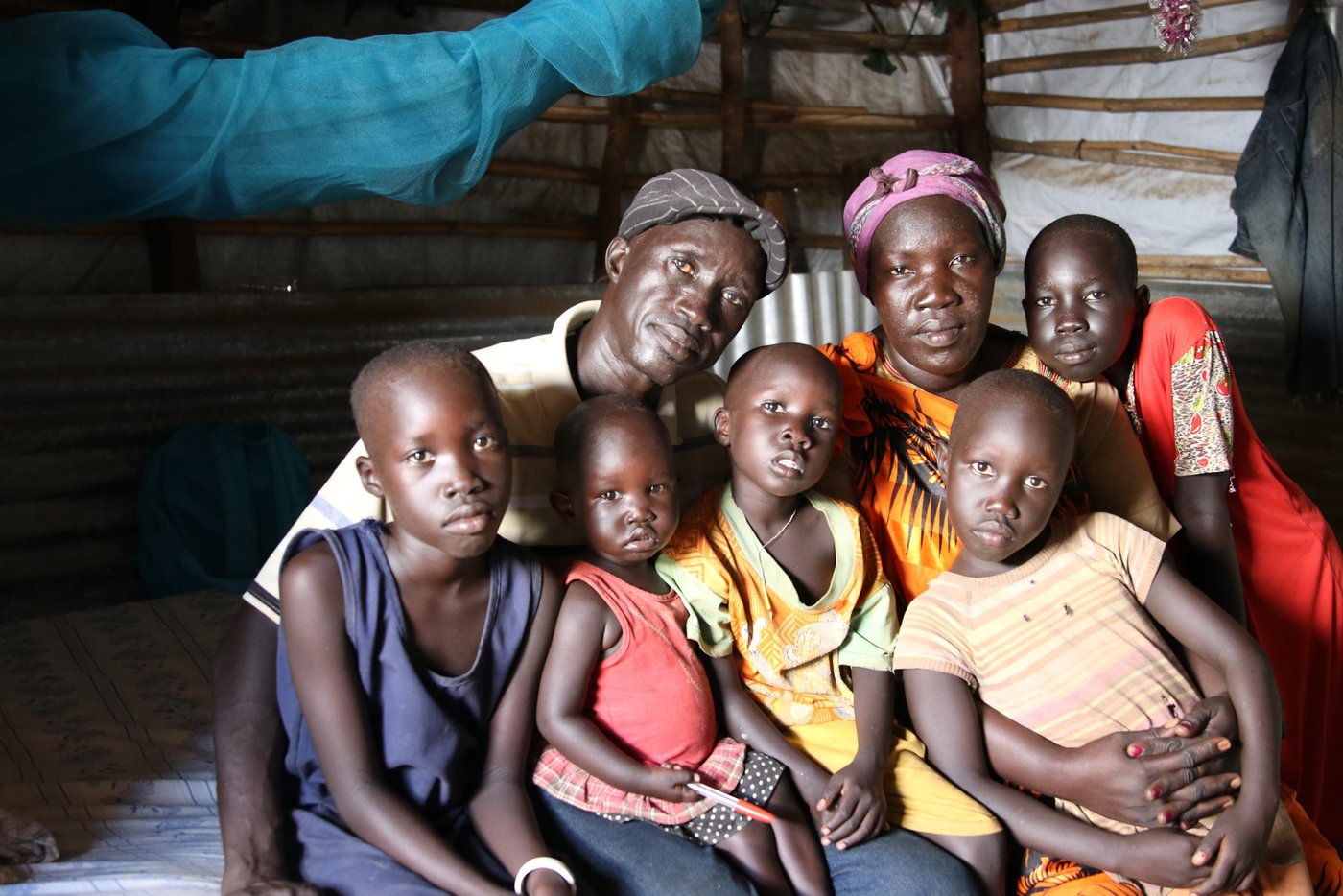
Life in the camp
Since that day, Majok has not left the camp. The civil war in South Sudan is now in its fourth year and has forced over three million people to flee their homes.
"I never thought that I would be displaced in my own country. We’re both educated, we have degrees, but there is no job here."
Majok works as a volunteer teacher at Hope primary school in the camp. It’s obvious that he is a popular teacher who knows the importance of education; wherever he walks in the camp, children gather around him. In class, he channels all his energy into engaging and teaching his pupils, and he has various teaching methods:
"Sometimes we jog around the camp with young boys and girls to refresh their minds," he says.

Not safe to go home
Majok’s house in the camp is situated only about 10 kilometres from his home. But he’s unable to go back.
"It’s not safe for us. Only last Sunday two pastors were killed in the city. We cannot go home until our leaders sign a peace agreement."
His life is here in the camp now.
"Sometimes I feel really bad because I am unable to support my own family. But my wife is a strong woman. Most of the time she tells me that this is part of life and that one day our suffering will end."
He remembers the happy days of independence in 2011. How they celebrated by singing and dancing in different languages and shared meals with friends.
"To me, South Sudan’s independence meant freedom. We were happy, living in harmony and peace. There was no killing, no harassment, we could move freely without fear. Now, the crisis has left us with nothing."
Majok will not celebrate another independence day until the peace returns to his country.
To me, South Sudan’s independence meant freedom. We were happy, living in harmony and peace. There was no killing, no harassment, we could move freely without fear. Now, the crisis has left us with nothing.Majok Yien Wanjang
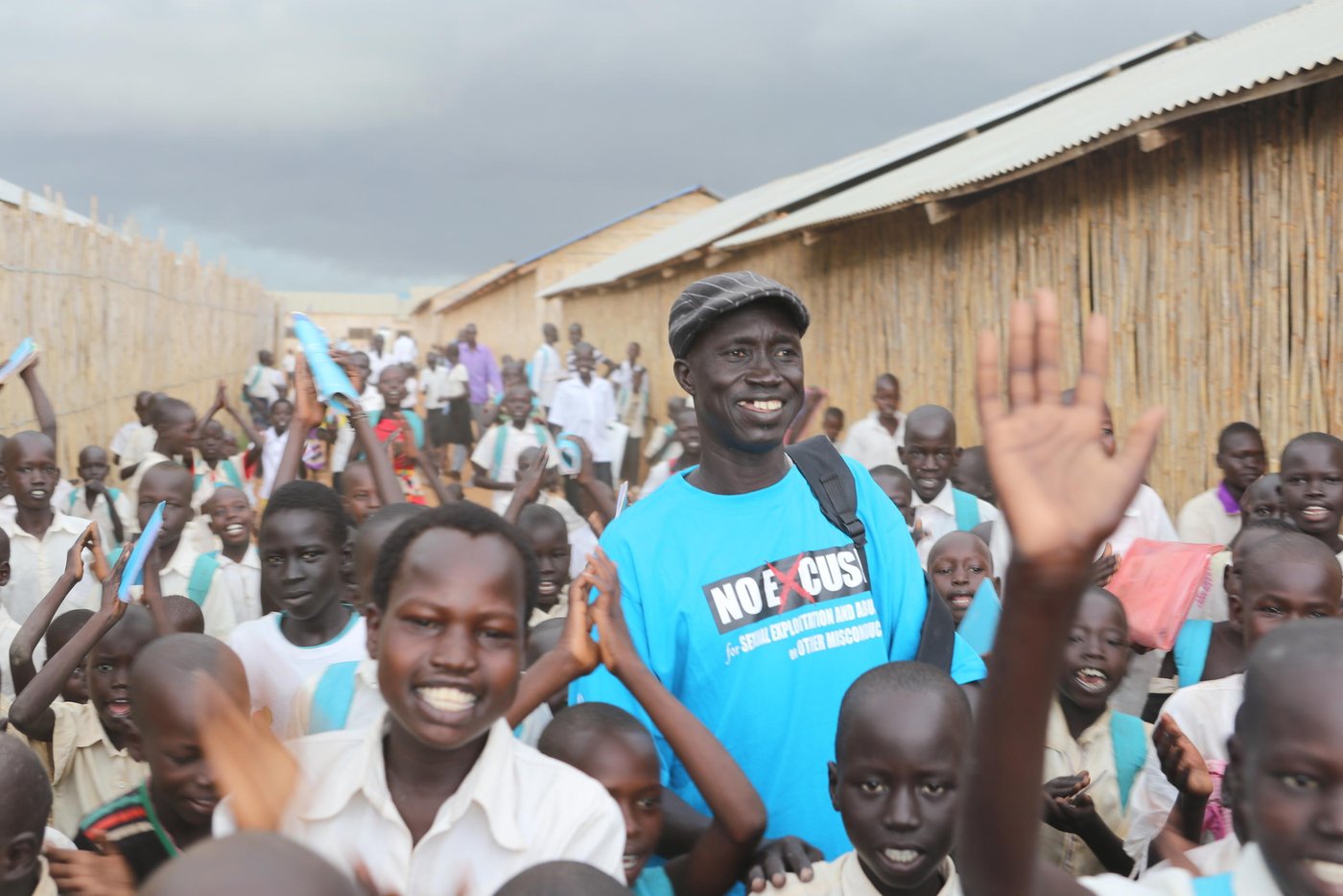
The crisis has divided the people
When peace returns, the first thing he will do is enrol his children in good schools.
“The children are the future leaders.”
And if there is something his country needs, it’s good leaders.
"The crisis has divided our people. Some have fled to nearby countries; others are internally displaced. We really need peace so that we can be united again,” he says and continues:
“The international community should not only provide food for the internally displaced people, but also put pressure on our leaders to bring peace back South Sudan.”
Our work in South Sudan
The Norwegian Refugee Council (NRC) has been in South Sudan since 2004. Last year we provided aid to 648,207 people through our work with food security and livelihoods, water, sanitation, hygiene, emergency education, and information, counselling and legal assistance. In the UN protection camp in Juba, we run education projects such as the school where Majok is teaching, in addition to literacy and vocational training for youth. Our projects in the camp are supported by UNICEF, NORAD, NMFA and the European Commission (ECHO).


